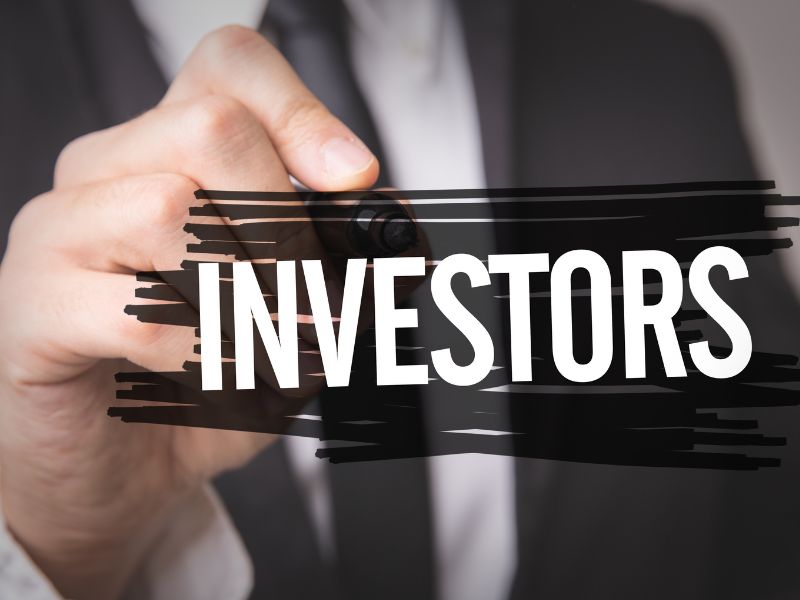When it comes to selling your business, as the founder of an early-stage start-up, you’re will have to face the tricky and often daunting task of finding the right type of investor. It may seem tempting (and most logical) to accept funding from any available source, but the true value of an investment lies in the relationships you forge with the investors. The partners you bring into your business and the rapport you build with them over time will usually outweigh the allure of name recognition (typically associated with venture capital firms).
Finding the right investor isn’t easy, but this challenge is not as insurmountable as it seems. In fact, there’s been a huge surge recently in the different types of investors through which companies like yours can secure financial support. There’s currently a lot of hype surrounding funding for successful start-ups, so don’t be afraid to put yourself out there. From traditional venture capitalists to small business investors, your options are abundant. Let’s take a comprehensive look at how to find the right type of investor when selling your business.
Which type of investor is right for you?
Investors play an incredibly important role in the growth and success of a business. They act as partners who provide your company with much-needed financial support. Their motivations tend to vary — some seek long-term involvement, while others prefer to aim for quick returns — so you’ll want to be wary of this and make sure that your investors’ motivations line up with your own.
Among the various types of investors, most business owners seek out venture capitalists, angel investors, and private equity firms. Venture capitalists prefer to invest in new and promising businesses, which helps the business find its footing in the market. Angel investors (typically recommended by acquaintances) invest in companies that catch their interest. Private equity firms share similarities with venture capitalists, but they focus on companies that another entity has already bought or sold. In essence, they seek opportunities with high potential, the downside being that they bear a higher level of risk. Let’s take a closer look at these investor types.
Venture capitalists

Venture capitalists are particularly attractive to entrepreneurs looking to solidify their market position. These investors will actively seek out companies with high growth potential. Not only do they provide financial support, but they also offer invaluable expertise, industry connections, and guidance to start-ups still in the early stages. If you feel like a venture capitalist might be the right type of investor for your business, you may be able to find one by attending industry events or taking advantage of platforms that connect start-ups with potential investors.
Angel investors
Angel investors prefer to take a different approach. Most of the time, a friend or close connection will recommend this type of investor and vouch for their credibility. Angel investors tend to be quite wealthy and will choose to invest their funds in businesses that pique their interest. Like venture capitalists, they provide your company with financial backing and also offer their mentorship and a valuable network of contacts for you to connect with. Explore your existing network or try to connect with potential angel investors online if you’re interested in this option.
Private equity firms
While sharing similarities with venture capitalists, private equity firms focus on a different segment of the market. They prefer to seek opportunities in companies someone else has already sold or bought out. Most of the time, private equity firms target more mature businesses. They also typically invest significant capital in exchange for a considerable ownership stake in the company they’re investing in. Their expertise lies in strategic planning, operational efficiency, and driving company growth. When finding a private equity firm, you may want to seek out referrals from industry professionals or explore private equity networks.
How to find the right type of investor when selling your business
As an entrepreneur, you will need to rely on investors for several reasons. First and foremost, investors will provide your company with the necessary funding for research and development of new products, ultimately making market expansion and innovation possible. Investors can also offer your company financial assistance if something happens and your business goes bankrupt.
Furthermore, investors will want to contribute to your business by fostering a sense of ownership and community responsibility. This will, of course, increase the chances of your business succeeding.

If you’re serious about finding the right type of investor for your company, you will want to prepare properly. Before seeking out investors, it’s important that you understand your own expectations and goals and ensure you’ve organized all of your business records accordingly. Take some time to evaluate the different types of funds available to entrepreneurs and consider the potential risks of investing in your business. Let’s break this process down in a bit more detail.
Understanding your own expectations and goals
Before setting off on the search for the perfect investor(s), you ideally need to have a clear understanding of your own expectations and goals. Take the time to define what you’re seeking in an investor — whether it be financial support, industry expertise, mentorship, or a combination of these things. By making your objectives clear, you’ll be able to align them more effectively with your potential investor’s profile and increase the chances of finding a great match.
Keeping your business records organized and accessible
Once you’ve clearly defined your expectations, take some time to organize your business records and make sure that you can easily access them without having to go through a lot of paper shuffling and hesitation. Investors will likely request this documentation and financial information at some point during this process. If you have your business records readily available, you’ll be able to demonstrate that you’re professional and easy to work with. The records you’ll want to organize and prepare usually include any business plans, market research, financial statements, and any other information that can fill investors in on your company’s growth potential.
Evaluating the different types of funds available to entrepreneurs
As you look into investors, you’ll need to evaluate the various types of funds that are available to entrepreneurs. Set some time aside to get an understanding of the investment strategies, focus areas, and risk profiles of different funds or investors. You’d be surprised what a difference doing this very necessary research can make. Venture capitalists, for example, may specialize in specific industries or stages of growth, while angel investors might have preferences for certain types of businesses. You’ve got to keep these factors in mind as you seek out and target different types of investors. Remember, it’s all about choosing investors who are most likely to align with the needs of your business.
Knowing the potential risks of investing in your business
You also have to consider the potential risks that investors will take when they invest in your business. You must understand that investors will evaluate the risk-reward ratio that’s associated with your company and use this to determine whether or not the potential returns outweigh the risks involved. When meeting with investors, be transparent about the risks and challenges that your business could potentially face. At the same time, though, highlight your business’s potential for growth and discuss how you will mitigate certain risks should they come into play.
Planning ahead: What will happen to your business after selling it to an investor?

Once you sell your business to an investor and cede ownership control, the business’s future will depend largely on the arrangements you and the investor made during the sale (as well as your own personal preferences).
While it can be challenging for some entrepreneurs to let go of their life’s work, there are plenty of ways to stay involved. You can still make meaningful contributions to the company’s continued success, even after you’ve sold it to an investor.
Active role
Some entrepreneurs choose to continue playing an active role in the business after they’ve sold it. This might involve staying on as an advisor, consultant, or board member. If you decide to take on one of these roles, you’ll be able to provide the new owners with your expertise and guidance.
The extent of your involvement will depend on how much time you want to commit and the business needs. Maintaining an active role in the business you just sold will allow you to stay connected to the company. It can also provide the new owners with support during the transition period — which they’ll certainly appreciate!
If you’d like to continue to benefit from your business after selling it, make financial arrangements with your investors. These arrangements may take the form of earn-outs or profit-sharing agreements (i.e., you’ll receive a portion of the company’s future profits or milestones they achieve over time). By making these kinds of arrangements, you’ll be able to step back from day-to-day operations while also providing ongoing financial incentives for the company.
Your buyer’s need for your involvement in the company will also influence the future of the business. On the other hand, your investor(s) may rely on your assistance during the transition of business ownership. This is especially so if you have special knowledge or relationships with certain individuals within the industry.
Your investor(s) may also see value in your continued involvement. You could help to drive the business’s performance due to your expertise.
In general, what happens to your business after you sell it will depend on the terms of the sale. It can also depend on whatever arrangements you and your investor agreed upon before closing the deal.
This is why it’s a good idea to thoroughly prepare and have a solid understanding of your post-sale goals before selling. Let’s do a quick breakdown of the potential scenarios that could happen after you sell your business.
Transition of ownership
Your investor will assume control and ownership of the business. They may bring in their own management team or retain existing employees, especially if said employees are particularly valuable. It all depends on what their strategic plans are for the company.
Strategic direction
The investor may have a specific vision and strategy for the business. They might decide to implement changes in order to make business operations run more smoothly. They may also pursue new markets or find other ways to drive revenue growth. You never know! These things are up to the investor at this point.
Financial impact
When you sell your business to an investor, you’ll typically receive some financial return. You can use the funds however you see fit, but many entrepreneurs choose to use this money to pursue new ventures or invest in other business opportunities.
Exit strategy
Some investors may have an exit strategy in mind from the beginning. It could be that they aim to build the business for a set period of time before selling it or taking it public. In such cases, you might have the opportunity to participate in a future sale or public offering. This means you could potentially reap even more financial benefits.
Identifying the right type of investor when selling your business: The bottom line
Selling your business is a big decision, and finding the right type of investor can be a challenging task. Try to keep in mind that the investor(s) you decide to go with should align with your business goals and preferences. If you feel confident about the type of investor you want to sell your business to, take a look at additional SRSR articles about selling your business.

